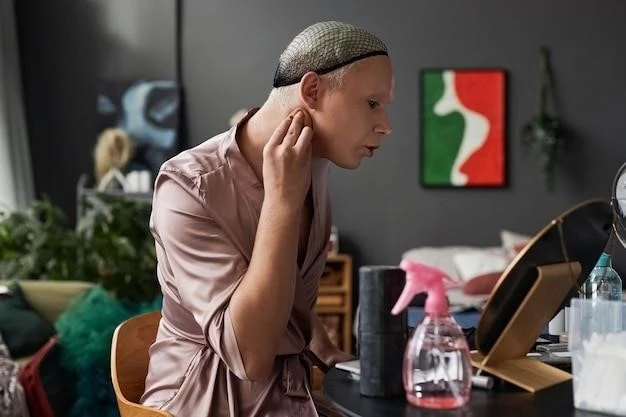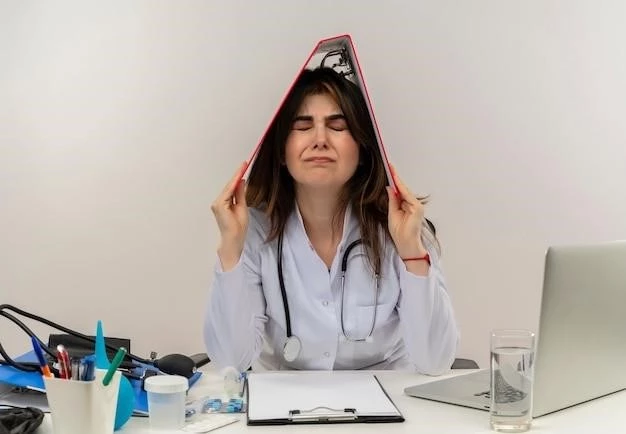Introduction
Ruvalcaba-Myhre syndrome, a rare autosomal dominant hamartomatous disorder, is characterized by a range of clinical features including microcephaly, skeletal anomalies, and hypoplastic genitalia. Understanding its manifestations and genetic basis is crucial for effective management.
Overview of Ruvalcaba–Myhre Syndrome
Ruvalcaba–Myhre syndrome is an extremely rare genetic disorder characterized by microcephaly, distinctive facial features, short stature, skeletal anomalies, and hypoplastic genitalia. This syndrome is associated with mutations in the PTEN gene and may present with developmental delays, intellectual disabilities, and connective tissue abnormalities. The condition shows similarities to other hamartomatous syndromes like Bannayan–Riley–Ruvalcaba syndrome. Due to its rarity and overlapping features with other syndromes, accurate diagnosis and management by healthcare professionals are crucial for individuals affected by Ruvalcaba–Myhre syndrome.

Symptoms
Individuals with Ruvalcaba-Myhre syndrome may experience a range of symptoms including microcephaly, skeletal anomalies, distinctive facial features, hypoplastic genitalia, and potential developmental delays. Recognizing these signs early is key to prompt and effective management.
Characteristic Signs
Ruvalcaba-Myhre syndrome presents with distinct characteristic signs including microcephaly, skeletal anomalies, hypoplastic genitalia, and a unique facial appearance with features like downslanting palpebral fissures, microstomia, beaked nose, and narrow maxilla. Additionally, affected individuals may exhibit very short stature and specific skeletal abnormalities such as brachydactyly. Early recognition of these signs is essential for timely diagnosis and appropriate management.
Causes
Ruvalcaba-Myhre syndrome is primarily caused by genetic mutations, particularly in the PTEN gene. These mutations lead to the various characteristic signs and symptoms associated with the syndrome. Understanding the underlying genetic cause is essential for accurate diagnosis and tailored treatment approaches.
Genetic Mutation
Ruvalcaba-Myhre syndrome is predominantly caused by mutations in the PTEN gene, similar to Bannayan-Riley-Ruvalcaba syndrome; These genetic alterations contribute to the array of symptoms and developmental abnormalities observed in individuals with the condition. Understanding the specific genetic mutation involved plays a critical role in the accurate diagnosis and targeted management of Ruvalcaba-Myhre syndrome.
Diagnosis
Diagnosing Ruvalcaba-Myhre syndrome often involves a comprehensive evaluation that may include genetic testing, physical exams to identify characteristic signs like microcephaly and skeletal anomalies, as well as imaging studies to assess any associated abnormalities. A multidisciplinary approach is typically taken to confirm a diagnosis and tailor a suitable management plan.
Testing and Evaluation
Diagnosing Ruvalcaba-Myhre syndrome typically involves genetic testing to identify mutations in the PTEN gene. Additionally, physical examinations to assess characteristic signs like microcephaly and skeletal anomalies, along with imaging studies to detect associated abnormalities, are vital components of the diagnostic process. A thorough evaluation by healthcare professionals is essential to confirm the presence of Ruvalcaba-Myhre syndrome accurately.

Treatment
Managing Ruvalcaba-Myhre syndrome often involves a multidisciplinary approach focusing on addressing individual symptoms and complications. Therapeutic interventions may include specialized care for developmental delays, orthopedic treatments for skeletal anomalies, and psychological support for affected individuals and their families. Regular monitoring and tailored interventions are essential for optimizing quality of life and managing the diverse challenges associated with this syndrome.
Management Strategies
Managing Ruvalcaba-Myhre syndrome requires a holistic approach to address the diverse symptoms individuals may experience. This may include specialized care for developmental delays, orthopedic interventions for skeletal anomalies, and emotional support for both the affected individual and their caregivers. Tailoring management strategies to each individual’s needs is essential for improving their quality of life and overall well-being.
Prognosis
Understanding the long-term outlook for individuals with Ruvalcaba-Myhre syndrome is essential for guiding treatment and support strategies. With early diagnosis and comprehensive management, individuals can experience improved quality of life and function. Regular monitoring and tailored interventions may help mitigate potential complications and enhance overall well-being for those affected by this rare syndrome.
Long-Term Outlook
Considering the long-term outlook for individuals diagnosed with Ruvalcaba–Myhre syndrome is crucial for planning continued care and support. Monitoring for potential complications, addressing developmental challenges early, and providing ongoing multidisciplinary care are essential to ensure the individual’s well-being and quality of life in the years ahead. Seeking expert guidance and staying informed about advances in managing the syndrome can empower caregivers and individuals living with Ruvalcaba–Myhre syndrome.
Prevention
While Ruvalcaba-Myhre syndrome is primarily genetic and not preventable, early detection through genetic testing and regular medical evaluations can help manage the condition effectively. Providing appropriate care and support can mitigate the impact of symptoms and improve overall quality of life for individuals affected by this rare syndrome.
Risk Reduction
While Ruvalcaba-Myhre syndrome is primarily genetic and non-preventable, understanding the implications of the condition through genetic counseling can help individuals and families assess the risks. Regular medical monitoring and early intervention for associated symptoms can help minimize complications and enhance the overall management of the syndrome. Being informed and vigilant can aid in reducing risks and promoting better outcomes for those affected by Ruvalcaba-Myhre syndrome.
Support
Accessing resources for caregivers can be valuable when assisting individuals living with Ruvalcaba-Myhre syndrome. Caregiver responsibilities may include daily support, coordinating care, and making important decisions. Utilizing available support resources can enhance the caregiving experience and improve the overall quality of life for both the affected individual and the caregiver.
Caregiver Resources
For caregivers supporting individuals with Ruvalcaba-Myhre syndrome, accessing specific resources can provide valuable assistance in managing the complex needs of their loved ones. These resources may include information about the condition, support groups, assistance programs, and guidance on coordinating care effectively. Utilizing caregiver resources can help enhance the quality of care provided and ensure the well-being of both the individual with the syndrome and their caregivers.
Research
Research on Ruvalcaba-Myhre syndrome aims to deepen the understanding of this rare disorder, explore genetic mutations, identify effective treatment strategies, and improve long-term outcomes. Ongoing studies focus on enhancing diagnostic methods, exploring potential complications, and developing targeted therapies to enhance the quality of life for individuals affected by this syndrome.
Ongoing Studies
Research studies on Ruvalcaba-Myhre syndrome focus on further understanding the genetic basis of the condition, refining diagnostic approaches, exploring potential therapeutic options, and investigating the long-term outcomes of affected individuals. By participating in ongoing studies, both patients and healthcare providers contribute valuable insights to advance knowledge and improve the management of this rare syndrome.
Complications
Individuals with Ruvalcaba-Myhre syndrome may face potential issues such as skeletal anomalies, developmental delays, and connective tissue abnormalities, which can lead to complications affecting various body systems. Understanding and managing these potential complications through comprehensive care and support are essential for improving the quality of life and overall well-being of individuals with this syndrome.
Potential Issues
Individuals with Ruvalcaba-Myhre syndrome may face potential issues such as skeletal anomalies, developmental delays, and connective tissue abnormalities, which can lead to complications affecting various body systems. Understanding and managing these potential complications through comprehensive care and support are essential for improving the quality of life and overall well-being of individuals with this syndrome.
